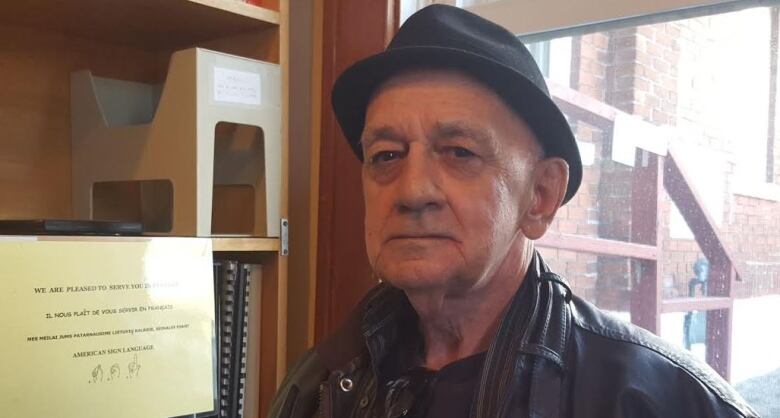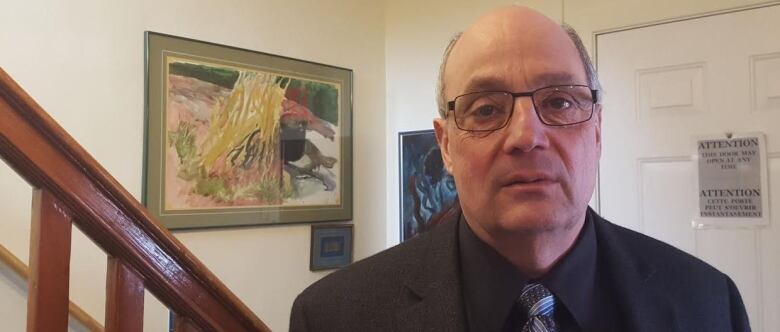Sudbury's John Howard Society calls for health care reform in jails
Former inmate says he and others were medicated in jail so they could sleep, relax


The John Howard Society in Sudbury says health care for people in custody is fragmented and ineffective.
This assertion was echoed by aformer inmate on Tuesday, who told his story as he joined with the John Howard Societyto callfor reform of the province's health care policies for jails.
Larry Nault said, in his experience, jailintroduced inmates to drugs, leading them to addiction that spiralsout of control once they are released.
Imaginebeing lockedup with 5,000other men, said Nault. Inmates were given sleeping pills to get through the night and theyalso got drugs to calm them down.

Nault saidhe was no exception.
"A lot of us, a lot of times, even myself, abused it. The more often we could stay 'out of it' ...you're beating the system for the hours you got to spend," said Nault.
"You forget about doing time. That was the main thing with a lot of people to forget that you're in jail. A lot of drugs were coming into the jail. Alot of people used drugs."
Eating Valium 'like candies'
Upon release, Nault said hewas addicted, which led to more crime.Then back inside, his behaviour became more out of control.
"When I got out I had to get drugs.I was heavy into the Valiums and whatever I could get ...I was eating them like candies," he said.
"If I had an argument with someone, I didn't even know what I was doing.I would go and stab the person I had an argument with months ago over nothing. I got shipped to a special unit for four years for that. And when I found out why I was shipped, in 1979, I haven't touched a Valium to this day."
Naultsaid he knows people who "are doing life right now for killing people [while]they were on pills. To this day, they don't know why they did it. They don't even know they did it and they're still in prison."
More professionals needed?
Most people in Ontario don't know that the Ministry of Health doesn't administer health care in jails, said the executive director of the John Howard Society in Sudbury. The agency provides services to people recently released from jail.
That means that once a person "goes inside,"their medical records stop, said John Rimore.

The Ministry of Community Safety and Corrections administers health care to prisoners, he said, but they don't share information with the Ministry of Health. When a person is released, there's a gap in their healthcare and they have lostaccess to services at a time when they arevery much in need of care, Rimore added.
If they act up they throw them in the hole and they put them on medication to keep them pacified.- former inmate, Larry Nault
"Mental health issues, substance abuse problems, chronic pain problems such as chronic back problems, that may be occurring before they're incarcerated and will continue after they're incarcerated. Ifthere isn't a streamlined and seamless way of dealing with those [issues], then those folks are losing health care."
The John Howard Society of Ontario is recommending a repair to the fractured system by integrating health care services into institutions.
As for Larry Nault, he said more psychiatrists and psychologists might help inmates make sense of their situation. He added that medicating people is not the answer.
"They're tooquick to give out medicationsto people. If they act up they throw them in the hole and they put them on medication to keep them pacified. They got to get more professional people in there," he said.
with files from Martha Dillman












_(720p).jpg)


 OFFICIAL HD MUSIC VIDEO.jpg)
.jpg)



























































































